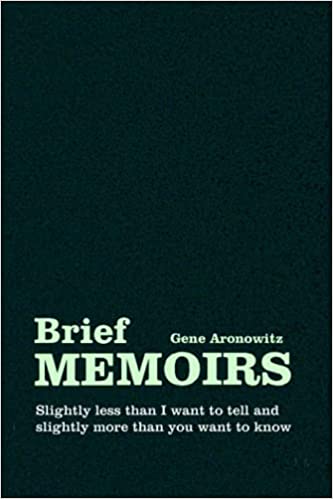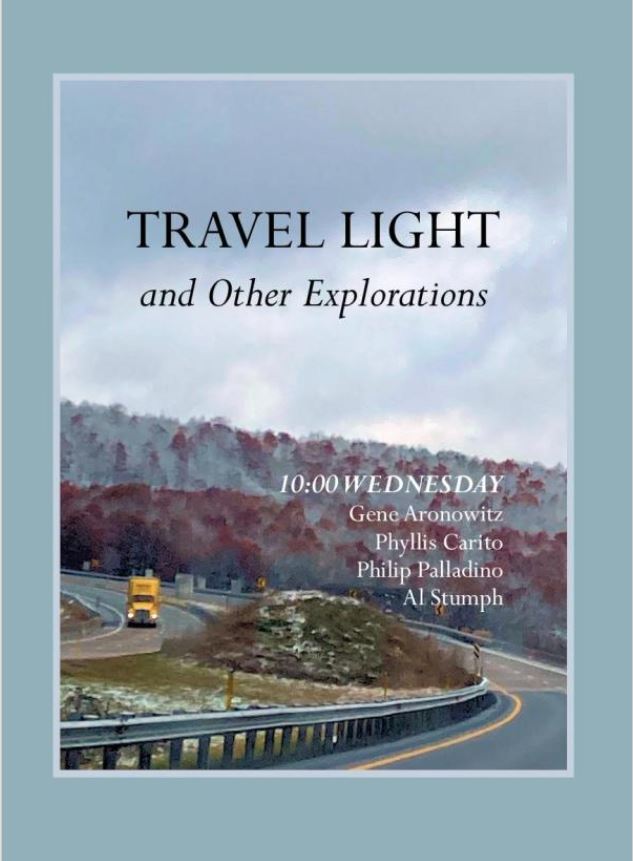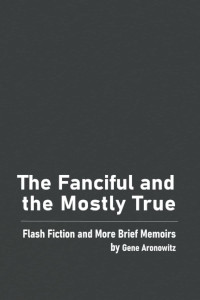Absent Fatherhood and Redemption
By Gene Aronowitz
I lived in Chicago during the turbulent sixties. In 1964, I began working at Hull House Association. After only one year at the agency, less than three years after getting my master’s degree in social work, I was promoted to Director of Social Work Services. My career was taking off and I was totally absorbed by it. I had little time and energy to devote to my daughter, Lisa, who was born in April 1966.
A month before Scott was born in October 1967, I began very consuming doctoral studies at the University of Chicago. I disliked being a student. After being a respected professional for the previous five years, I found being back in school a somewhat infantilizing experience. I knew that Scott and Lisa needed my attention and affection but again, there wasn’t much time and, because of considerable stress and dissatisfaction with school, there was also limited emotional capacity.
Then in 1968, the protests and police riot accompanying the Democratic National Convention took place in Chicago. In September 1969, the Conspiracy Trial began. Eight of the activists were indicted for their part in the protests. These events, my studies, and a part-time job kept me extremely busy and somewhat distant from my growing family. Cami was born in December 1969. Two months later, as the Conspiracy Trial jury just started deliberating, the judge sentenced the remaining seven defendants and their two attorneys with lengthy prison terms for criminal contempt of court. I believed that their contemptuous behavior was largely provoked by that very biased judge and therefore, the sentences were unwarranted. I spent much time organizing and participating in demonstrations even though I was still trying to complete my dissertation and preparing to defend it before the faculty. (The details of my studies and activism are explored in another memoir (See “Repression, the Chicago 7 and Me”).
A week after I received my Ph.D., in June 1970, we moved from Chicago to Belmont Massachusetts. I had accepted a job as Associate Director of Boston Children Service Association. Jeffrey, our adopted son, was born in Anchorage Alaska and was less than a year old when we picked him up in Boston in April 1972. As usual, I was absorbed with work and with the added complication of getting settled, both personally and professionally, in a new community. I was absent much of the time and even when present, communication was difficult. I had little to say about family life. Conversations about daily events flew past me. This pattern continued for a few years.
I was not happy with the situation and knew that I had to carve out some time that was just me and the kids. When each child became six years of age, and every subsequent year, when possible, I would take the celebrant out for a birthday dinner, just one-on-one. Initially, I was unaccustomed to talking directly with them and conversations were stale. My regular opener was to ask them to reflect on the year just past. I would start off with “How was your year?” That stilted question became a family joke and the kids, now grown, often ask me how my year was at my birthday parties.
When I separated from my first wife and moved out of the house, Lisa was 15, Scott 14, Cami almost 12, and Jeffrey 10. Each weekend, one of them stayed with me at my apartment so I saw each child every four weeks. This was a real challenge. If we had little to say to each other over a birthday dinner, you can imagine what an entire weekend was like? One of my first steps to remedy this distressing situation was to begin listening to American Top 40, hosted by Casey Kasem, a well-known disc jockey. I wanted to discover what songs and which recording artists were connecting with kids. I also knew that I had to do a lot of listening during those weekends to learn what was on their minds and to respond thoughtfully. Each week I got a little better at it.
Although our communication improved, I was not living with them and, as adolescents will do, they began moving away from family, not only emotionally but literally. They grew up, went to camp, went to college, traveled extensively, and moved away. Ironically, it was during these times that redemption began.
The catalyst was when my mother needed to go into a health-related facility, a step just before a nursing home. They asked for a biography so they could know who my mother was before she became debilitated. But her memory had diminished and, when I tried to fill in the gaps of her story, I realized I didn’t know very much about her. That was both shocking and sobering as I realized that my children, then 21,19, 17, and 16, knew very little about me. That’s when I began to write these brief memoirs, sharing each one with them as soon as they were written. Since there are now over 40, I can hear them sighing “Oh no, not another one.”
But, as I wrote, I realized I didn’t know as much as I wanted to know about them. My wife, Linda, came up with the idea of telling family stories at birthday parties and I decided to record them, a process dubbed the legacy project. In the first year, family members talked about the celebrant. It was like we were delivering eulogies but, of course, the person could hear what we were saying. During the second year, the celebrants talked about themselves, giving their own perspectives on significant events in their lives. That was the first time that any member of this very loquacious family, could speak uninterrupted for even a minute but at the parties, those recitations could exceed an hour. Breathtaking. During the third and the fourth years of the project, the celebrants talked about their values, what was important to them when they were growing up and how that changed over time. During the fifth and subsequent years, celebrants could still hold the floor but were able to speak about whatever topic or theme they chose. All of this was digitally recorded, and I was able to amass about thirty hours of family history.
Before the legacy project began, most of my knowledge about then was related to big events of which I was a part, bar and bat mitzvahs, graduations, performances and athletic events, holiday celebrations, and weddings. But at the parties, I learned about family life that I did not experience when I was out of the house. I learned what was important to them and why. I got to know about the details of their relationships. And I heard about the “little” experiences of which they were proud. It was exciting and emotionally heartening to get a fuller understanding of who they are. For each of my progeny’s 50th birthdays, I produced an edited “this is your life” audio, excerpted from their birthday recordings. Listening to all the recordings over and over again as I edited, I obtained a more comprehensive knowledge of the lives that they led. The last of these audios was produced this year. Jeffrey became 50 in 2021.
I always felt bad that I had been so absent and uncommunicative when my progeny were growing up. I owned up to it frequently, especially at Father’s Day events. It was interesting when they would say that they didn’t remember it that way. They knew I was a responsible provider and reasonably non-judgmental and those characteristics seemed to overshadow the behaviors that bothered me so much. The relationships are close and loving and the guilt I once felt about not being there when I should have been is now gone.


